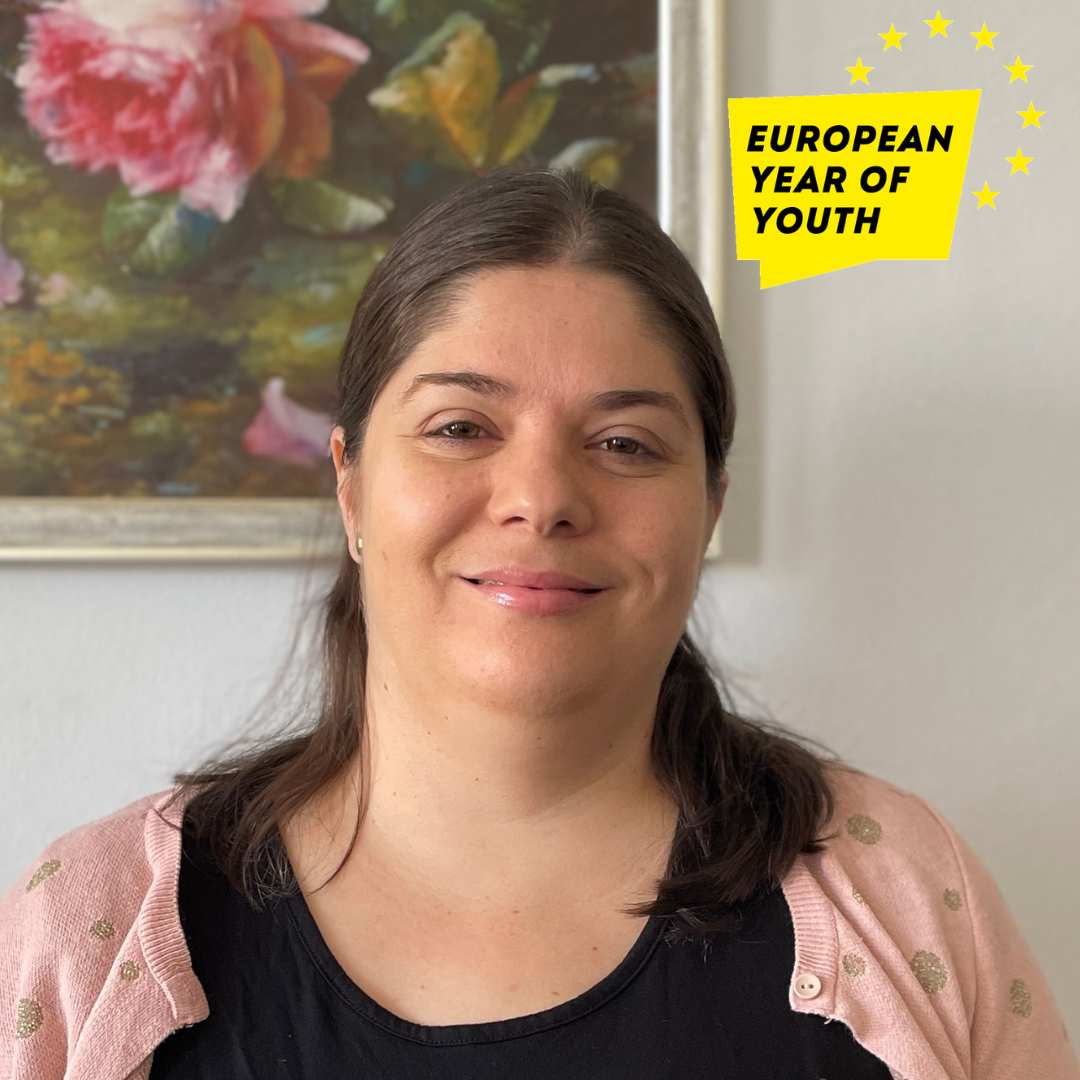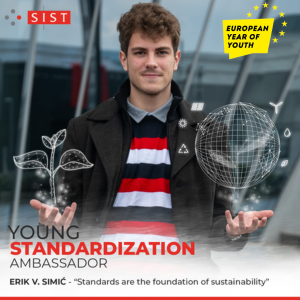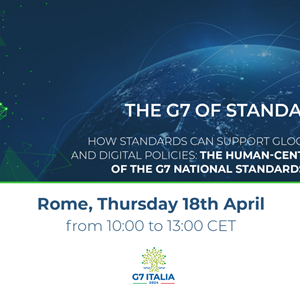2022 is the European Year of Youth. To celebrate this occasion, CEN and CENELEC are conducting a campaign, presenting a regular series of interviews with young professionals active in European standardization. In the tenth episode of the series, we get to know Maya Petrova, from Bulgaria.
1. Please, present yourself. To what extent are you involved in standardization?
I am from Bulgaria and I have been working at the Bulgarian Institute for Standardization (BDS) for more than 10 years. I am the Secretary of two technical committees: BDS/TC 87 ‘Medical devices’ and BDS/TC 100 ‘Construction machinery and road service area maintenance equipment (including winter maintenance)’.
2. Why and how did you become interested in standardization?
My interest in standardization dates back to my studies for the Master’s degree in “Technical Legislation and Quality Management” at the Faculty of Mechanical Engineering, Technical University of Sofia: there I took a course on "Standardization and Quality Management" which allowed me to learn about the topic.
3. Do you think standardization provides some added value for your career development?
Yes, undoubtedly. I feel my career in standardization so far has allowed me to improve my skills: the ability to plan and organise, to be pro-active, adaptable, and precise, and to pay attention to details.
Furthermore, in my daily job I regularly help translating and editing international and European standards into Bulgarian. This has also enriched my terminology and language skills in various fields.
Finally, together with improving my soft skills, working together with various experts from different background in the technical committees of which I am a Secretary has also enriched my specific technical knowledge.
4. Do you think standardization can play a role in the future in addressing big challenges, such as the digital transition and climate change?
Yes, I believe it can! In my opinion, standards are a major tool in addressing today's big challenges. Everyone involved in the standardization process knows that the key goals of standardization include supporting the sustainable development of society, facilitating the efficient use of resources, and considering the state of the art of technologies.
In particular, the digital transformation plays a key role in the development of all sectors of the economy. Digitalisation is the future, and standards can provide a solid ground for it.
Furthermore, I hope that the potential of standards will increasingly be recognised worldwide as a tool to tackle the negative impact of climate change and achieve climate objectives, thus providing solutions to one of the biggest challenges of our world.
5. Do you have or have you had a role model or mentor in standardization? What is the best advice they gave you?
Even if I did not have a specific mentor, I have been lucky enough because, throughout my career, I have received a lot of advice from many of the more experienced experts and colleagues with whom I had the pleasure to work. Perhaps the best piece of advice I have received is: “Be consistent in your actions and you won't make a mistake!”
6. Why should there be more young people in standardization? And what should CEN and CENELEC do to foster their engagement?
The main reason for including more young people is standardization is that, by definition, it is a continuously evolving process. Young people will bring more opportunities for innovation and, combined with the knowledge of experts with long-standing experience, they will help advance the standardization process to a new level, making it fit to meet the needs of the evolving society.
I believe the key to involving young people is increasing their awareness. Two good examples of engaging students in standardization in Bulgaria are the Master’s degree programme “Technical Legislation and Quality Management” at the Technical University of Sofia (which I was a student of), and the Information Centres on Standardization that BDS set up at several universities in the country. Furthermore, to raise the interest of young people, BDS also regularly welcomes students visits, in which they can get to know our work from close.
In conclusion, standardization bodies really need to work in a more targeted manner towards young people, in order to ensure both their own succession and innovation in standardization methods, at all levels – international, European and national.
You can follow the rest of the campaign here and also read the other interviews to our Young Professionals in Standardization.
Read the previous episodes of the series:
Episode 3, with Kristin Fagerli
Episode 4, with Alexandre Colombier
Episode 5, with Saharnaz Dilmaghani
Episode 6, with Jayson Shepherd
Episode 8, with Lilian Fehlmann
Episode 9, with Alessia Gaetani
Join the conversation through the hashtag #EuropeanYearOfYouth

Giovanni COLLOT
gcollot@cencenelec.eu



